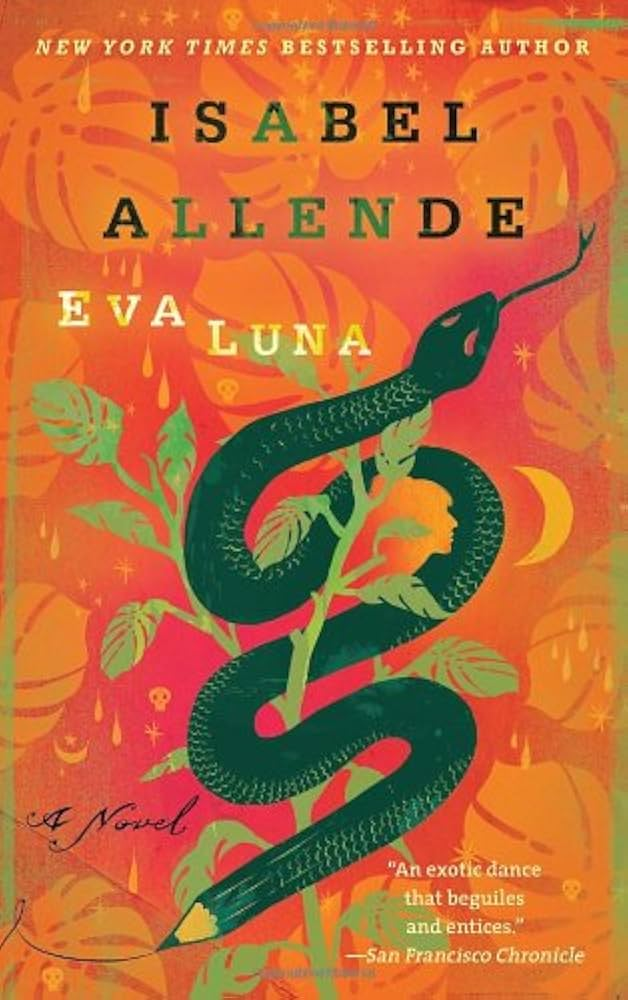Eva Luna and Why I Love Unreliable Narrators
I’ve recently finished a book that was recommended to me a couple of years ago, Eva Luna, and it has really made me think about the reliability of narrators in novels. Obviously, we’ve all read novels in which we’ve thought the narrator was unreliable, but when do we draw the line on whether or not a narrator is unreliable? If they aren’t reliable, why do we read the novel in the first place? For this post, I wanted to discuss how Eva Luna specifically utilizes an unreliable narrator and how I think it helps the plot, as well as why I think I enjoy reading literature with unreliable narrators so much.
Before starting with how Eva Luna is an unreliable narrator, I wanted to give a quick summary of the novel. In Eva Luna, we get a thorough narration of Eva’s life through her own perspective, and it is accompanied by the information that she is a storyteller, which already brings up some large alarms about how accurate the depictions of her life may be. She lives in South America (the exact country is never said), and is orphaned when she is very young, already influencing her choices. She tells the story of how she navigated her life and all of the different experiences that were thrown at her, which leads to a subjective ending, with two predictions of what is yet to come in her life.
As I already brought up, Eva Luna is a storyteller, which leads to reasons why she is not a reliable narrator. She has a certain tone throughout the novel, which makes it seem like some events in her life have been more or less dramatic compared to how she has described them, and there is an ebb and flow with how descriptive her memories are. The fact that she is reflecting on the experiences adds to the feeling of unreliability, which makes the reader question how accurate her depictions are. Adding to her natural ability to tell stories, she has lived through a lot of trauma throughout her life, which shaped her views and added biases. For example, she has had a lack of support throughout her life, which shapes her into a very independent person and makes the supporting characters in the story slightly more difficult to understand.
Although these factors make it sound like reading pages upon pages of Eva Luna describing her life in a blatantly untruthful way, I ended up enjoying it. Leaving more opportunities for readers to question the story and narrator is something I really enjoy in novels, and it adds a sense of realism to any story for me. If everything was from an outside perspective, I don’t think I’d be able to feel empathy for Eva in the way I did, and the disorganization of her life makes it feel like this was a real person describing their experiences that they didn’t completely remember. I find realism really important when I’m reading books with a similar style to Eva Luna, and I think that Isabel Allende manages to add that sense of realism I love.
Overall, I don’t know if Eva Luna is a novel that is known for having an unreliable narrator, but I think her biases add up to strongly influence the way she describes her life events. The novel is really interesting in my opinion, and I would definitely look into Isabel Allende’s works, as she has a very interesting life story that has definitely influenced her writing. Thank you so much for reading!
- Nona R.



Wow, this book sounds really interesting, as does unreliable narrators.
ReplyDeleteHi Nona! I have never heard of this book but it seems like a relatively good read overall.
ReplyDelete